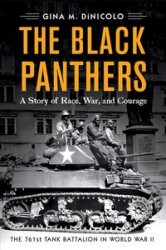With the Eagle Protection Act, Congress authorizes the Department of the Interior’s Fish and Wildlife Service to restrict the killing of bald eagles or the taking of their parts. The law threatens many Indian groups’ ability to practice their native religion because eagle feathers are needed to make sacred religious paraphernalia. (See also entry for 1986.)
Southwestern Indian artisans reject the swastika motif.
To protest the Nazi Party in Germany, Indian artisans from the Navajo (Dineh), Hopi, Papago (now the Tohono O’odham), and Apache peoples sign an agreement to stop using swastika designs in their work. Before the swastika was adopted as a Nazi symbol, it was a common design motif in southwestern silverwork, basketry, and textiles.
American Indians register for the draft.
For the first time in American history, all young Indian men are called upon to register for the draft as the United States prepares to enter World War II. (Because Indians did not receive U. S. citizenship until 1924, most were not subject to the draft during World War I.) Before the end of World War II, approximately 25,000 Indians will serve in the U. S. military, while about 45,000 will contribute their labor to wartime industries. Three Indian soldiers—Jack C. Montgomery (Cherokee), Ernest Childers (Creek), and Van Barfoot (Choctaw)—will be awarded the Medal of Honor.
“When I went to Germany I never thought about war honors, or the four ‘coups' which an old-time Crow warrior had to earn in battle. Those days were gone. But afterwards, when I came back and went though this telling of the war deeds ceremony, why, I told my war deeds, and lo and behold I completed the four requirements to become a chief.”
—Crow veteran Joseph Medicine Crow on his experiences as a soldier in World War II
Outside the main post office in Buffalo, New York, protesters led by Tuscarora leader Clinton Rickard speak out against the drafting of the Iroquois men to serve in World War II. The group maintains that Iroquois should not be subject to the draft because they are citizens of their own sovereign nation, not of the United States. Rickard does not object to Iroquois serving in the military, but he counsels those of drafting age to register as “alien non-residents” rather than as citizens. (See also entry for 1941.)




 World History
World History









